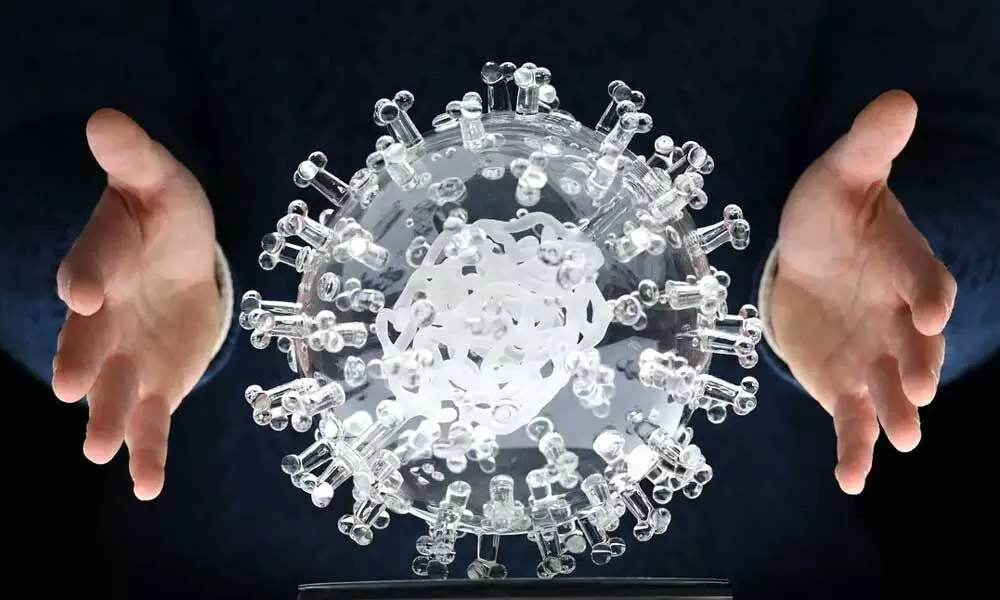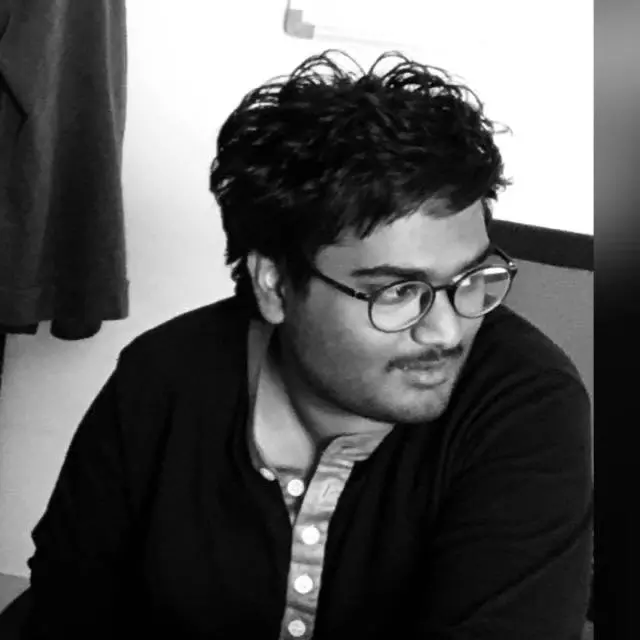Not COVID. Our response to it will end humanity
 For representational purpose
For representational purposeAs, Covid 19 eclipses our world and influences a massive change in our social behaviours, forcing us to make our lives much more reliant on the Internet of Things, propelling businesses to adopt automation as a response to a fast-spreading pathogen.
As, Covid 19 eclipses our world and influences a massive change in our social behaviours, forcing us to make our lives much more reliant on the Internet of Things, propelling businesses to adapt automation as a response to a fast-spreading pathogen. We must halt our rapid reliance on modern digital technology, and introspect, for our overt reliance on technology can end up causing more harm than good. Even before Covid 19, A.I. was slowly taking over each and every field, including the field of journalism and writing. In fact, even MSN.com has decided to replace dozens of journalists with Artificially Intelligent robot bots.
[1] This technology hasn't been new, in February 2019, Matt Carlson, an associate professor of journalism at the University of Minnesota authored a study called the Robotic Reporter, pitching an algorithm that converts data into narrative news in real-time.
[2] Even as early as 2017, the novel 1 the Road was written by an experimental Artificial Intelligence programme.
[3] The Covid crisis, has given the push for all fields, everything from journalism to creative writing, to hard labour work in the factory, to even chess to adopt Artificial Intelligence doing all the tasks, and replacing humans at a rapid pace, doing more efficient work at a much faster pace. The necessity of social distancing to contain the pathogen, the necessity of draconian lockdowns has forced many businesses in all walks of life to adapt fast to AI tools, in turn making AI generating firms to improve both quality and efficiency of their products, thereby appealing to more and more enterprises. But it forces us to question. Are we committing a bigger blunder just to contain the spread of disease?
Outbreaks far lethal then Covid 19 have been engulfing humanity since eternity, each outbreak was far more lethal than this one, and each left both a positive and negative impact. In fact, there was a major plague outbreak dating back to 3,000 BC, that plague even ended up shaping Bronze Age Europe and Asia, forcing steppe settlers to rush into both Europe and Asia, influencing the social and economical history of both continents, in fact, Steppe Migration still culturally influences much of our lives even today.
[4] Much of our philosophical and religious ideas have been heavily influenced by Steppe Migration. The Black Death that engulfed Europe, during the 1300s and wiped out 30-50% of the population leads to a healthier, and smarter population, increasing social mobility and allowing the poorest of the poor to rise up in the economic strata due to a multitude of factors like availability of resources, inheriting more resources from dead relatives and a multitude of factors. An era of suffering, lead to a more adapted, physically and psychologically stronger population that ultimately lead to the Renaissance.
[5] Every outbreak has left both devastating horrors, but also extremely positive developments that shaped human history as we know it, just imagine without imagining a world without the Renaissance ever happening, we'd have no inventions like the Printing Press, the Grenade Musket and even the idea of a newspaper would be obsolete without the Renaissance which was caused by a multitude of factors including the outbreak of Black Death.
[6] During the era of Black Death, social distancing and quarantine measures were imposed too, ships sailing into Italy were halted for a period of forty days, thus leading to the world "Quarantine" from the Italian word "Quarantine" literally meaning "Forty Days". [7] But toward the end of the pandemic, human social interactions and life were back to normal, social distancing wasn't a way of life forever, it was a temporary measure to contain the spread. Eventually, the Renaissance was known for human interaction and human introspection which lead to the world's most beautiful expressions of art and literature, and pathbreaking scientific innovations. The importance of a human individual and the power of human social cooperation didn't perish because of the Black Death, in fact, was strengthened by the crisis. Helping us leap ahead.
Even in our most recent times, the outbreak of the Spanish Flu in 1918, that wiped out 50 million people, and infected a third of the world's population, ultimately created the public health system, and eventually lead to the era of the Roaring '20s, an era of prosperity, cultural revolution, an era known for its opulent human lifestyles, parities and celebrations
[8]. The Spanish Flu too like lead to lockdowns extending up to six weeks, in major cities, masks were made compulsory and those without masks weren't allowed into public transportations or shops, life slowly returned to normal after lockdowns
[9]. And masks and probation of large public gatherings remained in place till the end of the outbreak. But as the outbreak faded, humans begin interacting, even more, those fruitful interactions that lead to pathbreaking social changes like the Television, The Radio, and the Films with Sounds and Opulence, along with ushering in of the Jazz Party Age all being adopted by a rising middle class, in the United States, Canada, Australia and Europe
[10]. It also helped push a major demand for the rapid production products like the automobile, booze, fashionable clothes. This rapid demand, in turn, lead to rapid industrialisation, and rapid job growth. Ironically after social distancing measures were lifted, unlike today. The rapid expansion of film theatres, with better quality and more seating capacity, was a common sight in the developed nations
[11]. The trickle-down prosperity theory was working. The Roaring 20's also lead to a new wave of literature, with writers like Ernest Hemingway, Fitzgerald, contemplating materialism, and penning down thought-provoking literature of highly philosophical nature. Leading to a far more intelligent and thought-provoking era of literature
[12]. What we can learn from all these major outbreaks, is each outbreak lead to the betterment of our overall human population, causing us to leap ahead in all walks of life, because it was sheer human resilience and adaptation to pain that leads us to the progression and betterment of the world as we know it. Neither of these outbreaks leads to people distancing from each other, cutting human interactions, which will lead to the ultimate fall of culture, literature and even science. Neither they did lead to increasing reliance and creation of Artificial Intelligence robots, that replaced human jobs, that replaced human interactions, replacing human writers who saw pain and adapted and ultimately replacing humans themselves.
Outbreaks have been part of our history since our own evolution. In fact, viruses were a major driver of human evolution according to a study published in 2016 by the Genetics Society of America
[13]. But why is it that now, we are reacting differently from all the other times, by replacing everything with Artificial Intelligence, making our lives more and more intertwined with Artificial Intelligence? With everyone from the Big Corporations to Governments encouraging more and more reliance on digital technology, and AI. Why aren't we have a rational debate about its effects, before rapidly adapting a complete digital lifestyle laced with AI dominating us? In fact, as Elon Musk said: "AI is the biggest threat we face."
Stephen Hawking, one of the world's famed theoretical physicists in 2017, warned us that creating far more intelligent machines than us, will make it impossible for us to compete, eventually leading to the end of our own kind
[14]. And Hawking's fear don't stem from fearful rhetoric. Since the dawn of creation, many species have been wiped from the face of the Earth in the battle of survival. In fact, other human species like the Neanderthals, Homo neanderthalensis, the Denisovans, Homo Erectus, Homo Rhoeiensis have all faced extinction, and much of the factors that lead to their end include warfare with our own Homo Sapiens, our adaptability, agility and intelligence ensured that the various other human species failed to compete with us and saw their end. Their end was natural, and nature's own equation of survival of the fittest played its part
[15]. But ironically, because of fear of a pathogen we are adapting, creating, artificial intelligence machines with far superior skills than us, we are even giving them their own consciousness. If a robot has a capable consciousness of writing a novel or a poem, and far more superior skills than thousands of people, it is only time before it rebels and decides to fight us for dominance, just like our ancestors the Homo sapiens did. Anything with consciousness like us, will eventually behave like us, and fight for dominance. And because we are making AI more and more powerful each day, and becoming more and more dependent on it every single day. We are creating a Frankenstein monster, we are creating our own end. The gateway to our own extinction. As Hawking famously says, humans take years to adapt and evolve, natural evolution slows our skills down. But for an AI machine who isn't bound by any natural restrictions, it is far easier for it to adapt and improves upon its own design much much faster. AI will be very good at accomplishing its goals, and humans come in its way, we could get in trouble. Hawking also warns that due to AI's skills, there could be a potential intelligence explosion, making AI exceed our own intelligence, even comparing it to how our intelligence exceeds that of snails
[16]. The more our lives become tangled with the Internet of Things and Artificial Intelligence, the easier it is for a superior artificial intelligent life form to put our lives to an end. There can be a vaccine for a pathogen, even without one multiple disease outbreaks have come and gone, leaving humanity wounded, but more resilient. But by socially isolating people, forcing people to adopt digital mediums even for work and communication, pushing automation as an alternative to enterprises, and chalking out strategies to increase the efficiency of Artificial Intelligence. Governments are making it easier for AI to gain much more power, not sensing the dangers. Its time, Governments and we as a whole society rationally examine the path we are going down into because of the mass hysteria caused by Covid 19.
As Hawking suggested in 2017, it is vital for technology to be controlled in order to prevent it from destroying the human race. It is time for us to wake up, and debate about the potential risks of AI or perish like all the other human species or dinosaurs
[17]. As a metaphorical warning, Hawking gently reminded us of an ending from a short story called Answer by Fredric Brown. A computer was asked once, "Is there God?". The computer replied, "Yes, there is now."
So will we end up creating our own extinction so we can save ourselves from a temporary disease outbreak?








